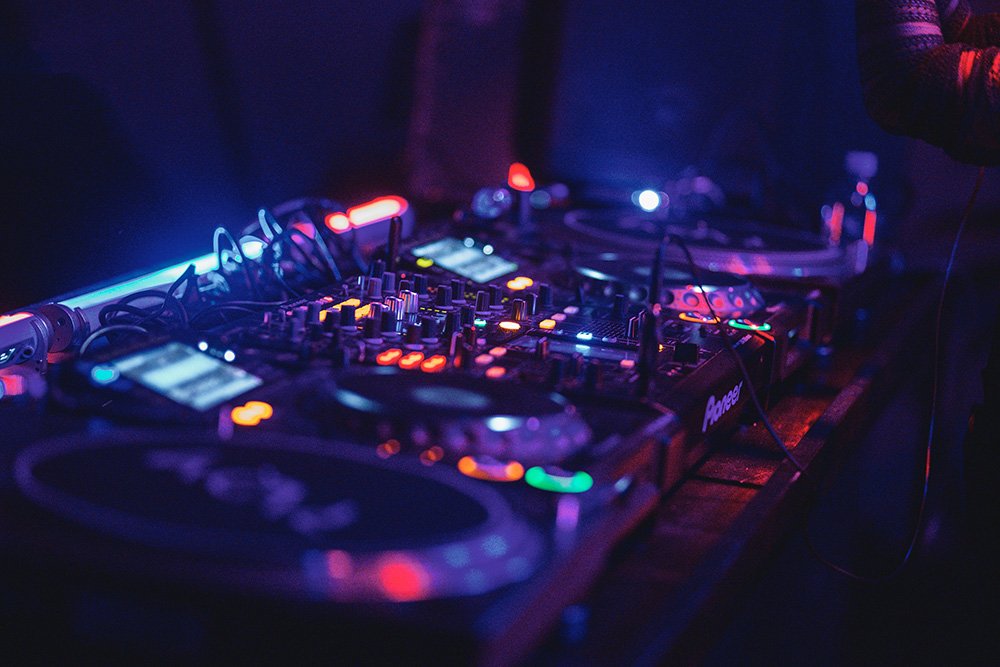When we think of DJs, we often envision them behind turntables, mixing beats, and creating an electrifying atmosphere at parties or festivals. But what exactly do DJs do? What is the full scope of their role, and what skills do they need to create the perfect experience for an audience? In this article, we will delve deep into the responsibilities and skills of DJs, uncovering what goes on behind the scenes and what makes them an essential part of the music industry.
Understanding the Role of a DJ
A DJ, short for Disc Jockey, is a person who plays recorded music for an audience, typically at clubs, parties, festivals, or events. what do djs do The primary role of a DJ is to curate and mix music to entertain a crowd, ensuring a seamless flow of music that keeps the energy high. While the concept of DJing has evolved over the years, the core responsibility remains the same: to create an engaging and enjoyable music experience for the audience.
However, the scope of what DJs do has expanded with advancements in technology and music culture. DJs are not just people who play music; they are artists, entertainers, and even influencers in their own right. The role of a DJ goes beyond just mixing songs. It involves understanding the crowd, reading the atmosphere, and creating an environment where people can dance, enjoy, and immerse themselves in the music.
Responsibilities of a DJ
Curating the Playlist
One of the primary duties of a DJ is to curate a playlist that aligns with the event’s vibe. A DJ must have a deep knowledge of different genres of music, and an understanding of how to blend them together in a way that flows naturally. Whether they are playing at a high-energy club event or a relaxed wedding reception, the DJ’s job is to select the right tracks that match the occasion, mood, and audience.
DJs usually have a library of music they rely on, but a large part of their job is also to stay current with new releases and trending tracks. They must be prepared to mix and match genres, tempos, and styles in ways that keep the crowd excited and engaged. Many DJs also have the ability to tailor their music selection to a specific crowd based on their preferences, energy levels, or the type of event they are hosting.
Mixing and Transitioning Between Tracks
A crucial skill that distinguishes professional DJs from amateurs is the ability to mix and transition between tracks smoothly. Mixing involves blending two or more songs together in a way that makes the transition seamless, without the audience noticing any abrupt shifts in tempo or tone. DJs use a combination of techniques such as beatmatching, EQing, and using effects to make transitions feel natural and keep the momentum going.
Beatmatching is one of the most fundamental skills that DJs use to ensure that two tracks align in tempo, so they can be mixed together without disrupting the flow of music. Advanced DJs will use EQing to manipulate the bass, midrange, and treble frequencies of a song, enhancing or reducing certain elements to create a more harmonious mix.
Reading the Crowd
One of the less talked about but most critical skills for a DJ is the ability to read the crowd. A good DJ will understand the energy of the room and choose tracks that match the vibe, ensuring that the crowd remains engaged throughout the performance. If the energy dips, the DJ may adjust the music accordingly to bring the atmosphere back up. Similarly, if the crowd is getting too wild, the DJ might tone things down a bit to bring balance.
This skill goes hand-in-hand with the concept of “reading the room,” where the DJ adapts to the crowd’s reactions. DJs often rely on their intuition, experience, and knowledge of music to make decisions in real-time.
Engaging with the Audience
While the primary focus of a DJ is to create great music, engaging with the audience is also a vital part of the job. Many DJs will interact with the crowd through vocal cues, hand signals, or even dancing. This level of engagement helps create a connection between the DJ and the audience, making the experience more interactive and memorable.
Some DJs also use visuals, lights, and even their personal brand or persona to engage with the crowd. For instance, during live performances, DJs often incorporate lighting effects, projections, and stage designs to enhance the overall experience. This engagement adds an element of performance art to their job, elevating them from simply being music players to full-fledged entertainers.
Technical Setup and Equipment Management
Before hitting the stage, DJs need to ensure that their equipment is properly set up and in working order. This involves connecting sound systems, turntables, mixers, controllers, and other necessary gear. Many DJs now use digital controllers and laptops, which come with software like Serato or Traktor, but traditional vinyl and CDJs are still widely used in the industry.
A DJ needs to be tech-savvy to manage and troubleshoot any potential technical issues during a set. The last thing any DJ wants is for their equipment to malfunction mid-performance, so a good DJ always comes prepared with backups and knowledge of how to handle various technical problems. Managing cables, ensuring proper sound levels, and checking that everything is synced up and functioning is a behind-the-scenes responsibility that ensures the show runs smoothly.
Sound Design and Audio Mixing
Another skill that many DJs possess is the ability to design and manipulate sound. Sound design involves creating or modifying sounds that DJs can incorporate into their sets. This includes the use of loops, samples, sound effects, and even custom-made tracks. These elements are added to a mix to provide a more personalized and unique experience for the audience.
DJs often use audio mixing techniques to tweak the sounds they play. This involves adjusting the frequency, tone, and tempo of certain elements within a song to create a more dynamic and compelling listening experience. A skilled DJ will know how to manipulate the sound to suit the event, using effects like reverb, delay, or phaser to enhance specific parts of a track.
Collaborating with Event Organizers
DJs also work closely with event organizers, promoters, and other performers to ensure the event runs smoothly. They often coordinate the timing of their sets, ensuring that their performance fits into the broader schedule of the event. For large-scale events like music festivals or concerts, DJs may work alongside sound engineers, lighting designers, and other technical staff to create a cohesive and seamless experience.
During the planning stages, the DJ may be asked to curate a playlist that aligns with the event’s theme, or they may be given specific requests from the organizers. Whether it’s a corporate event or a private party, the DJ’s role involves understanding the goals of the event and executing their performance to complement the overall vibe and objectives.
Essential Skills for DJs
Technical Proficiency
A good DJ must be proficient with the technical aspects of their craft. This includes a solid understanding of sound equipment, music production software, and the ability to troubleshoot issues during live sets. DJs need to be comfortable using both traditional analog and digital equipment, as well as software tools that help with beatmatching and mixing. Knowledge of sound engineering principles, such as EQing and filtering, is also crucial for creating the best possible mix.
Musical Knowledge and Taste
A strong understanding of various music genres and styles is essential for any DJ. DJs need to have an extensive music library, including both classic hits and the latest trends in music. They should be well-versed in the genres they specialize in, but also be open to exploring new sounds. A good DJ knows how to mix different genres to create an engaging and unique set for their audience.
Creativity and Innovation
DJs are artists, and creativity plays a large role in their work. From creating unique mashups and remixes to experimenting with sound effects, the ability to innovate is key to standing out in the competitive DJ world. A creative DJ will always be on the lookout for new ways to keep their performances fresh and exciting, whether that involves using new technology or incorporating unexpected elements into their sets.
Communication and Crowd Interaction
While DJing is largely about music, communication skills are equally important. DJs need to know how to interact with their audience, whether that involves hyping up the crowd, reading their reactions, or playing songs that match the atmosphere. Understanding the audience’s energy and adjusting to it is what separates a good DJ from a great one.
Conclusion
So, what do DJs do? They are not just people who play music; they are dynamic, multifaceted performers who curate, mix, and create an experience tailored to their audience. DJs are responsible for curating the right music, reading the crowd, creating smooth transitions, and troubleshooting technical issues. They also possess a deep knowledge of music, technical skills, and an innovative mindset that allows them to push the boundaries of what is possible in their craft. Whether you are attending a high-energy club event or a relaxed gathering, the work of a DJ is crucial to setting the mood, elevating the experience, and ensuring that the audience enjoys every moment.


